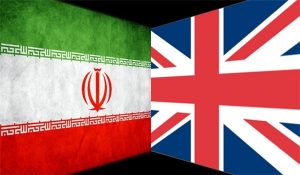The British Conservative Government’s Political Elite, and the European Union: Safeguarding British Interests (With Special Reference to: 2010 – 2016)
Those who go to public schools such as Eton, Harrow, Winchester, Rugby, Charterhouse, Marlborough and later to Oxford and Cambridge occupy positions in the monopoly sector of the economy, such as large companies, banks and insurance firms in the City, in Parliament, Government, the military and para-military forces, and the Civil Service, in the Church and the legal profession and in the various bodies and agencies which bridge the gap between the state and the economy.
“As the analysis of C. S. Wilson and T. Lupton in 1959 shows, Eton alone produces 30% of the Conservative ministers, of the directors of large banks, of the directors of the City firms, of the directors of the insurance companies”9. Eton and five other public schools that have been mentioned, produce between two-fifths and a half of the holders of these posts. For example, the 30% or so of Old Etonians whom one finds in the government and various other organisations, “have greater influence than their numbers warrant because, being Old Etonians, they have more contacts. They supply information about other Old Etonians who are influential in other walks of life; they are go-betweens, they are the instrument of compromises in the sectors of British political, social and economic life in which they are numerous”10.
Connection of the honours system with career promotion provides an effective mechanism to control the cohesion of the elite. For example,
“although the Order of the British Empire is the normal order for Civil Servants, those in the Foreign Office and the Diplomatic Service normally receive honours in the Order of St. Michael and George. Honours below the level of CBE are used in a relatively non-discriminatory way, but the CBE (or CMG) itself is awarded more or less automatically on promotion to the level of Assistant Secretary. Under Secretaries can expect a Commandership in the most prestigious Order of the Bath (CB), whilst those who are promoted to Deputy Secretary are well placed for a Knighthood in the Order of the Bath (KCB), and those who continue to give services at this level might become superior Knights Grand Cross (GBE)11.
What public school and ancient universities do for the children of the elite, the House of Lords does for many successful men at a later age.
“The House of Lords is more than a mere symbol; it is a concrete proof of the permanence of a social hierarchy in Britain; it is even to some extent a meeting place for people belonging to different branches of the managerial and professional worlds. The title counts, but also the club itself.
Pages: 1 2 3 4 5 6 7 8 9 10 11 12 13 14 15 16 17 18 19 20 21 22



